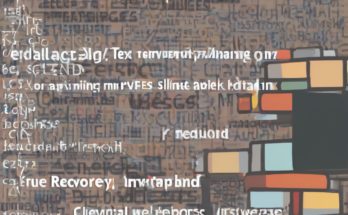Navigating the Labyrinth: A Comprehensive Guide to Drug Addiction Rehabilitation
Drug addiction is a devastating disease affecting millions worldwide, trapping individuals in a cycle of dependence and despair. Rehabilitation, however, offers a lifeline, providing the tools and support necessary for recovery. This comprehensive guide explores the multifaceted world of drug addict rehab, covering various aspects from understanding addiction to navigating the recovery process and maintaining long-term sobriety.
Understanding the Nature of Addiction
Before delving into the specifics of rehabilitation, it’s crucial to understand the nature of addiction. It’s not simply a matter of willpower; it’s a complex brain disease characterized by compulsive drug seeking and use, despite harmful consequences. Addiction alters brain chemistry, affecting reward pathways and impacting decision-making abilities. This understanding is vital for developing effective treatment strategies.
- The Biological Basis: Addiction involves changes in brain structure and function, specifically in areas associated with reward, motivation, and memory. Neurotransmitters like dopamine play a critical role in reinforcing addictive behaviors.
- The Psychological Factors: Underlying mental health conditions such as depression, anxiety, and trauma can significantly contribute to addiction and complicate the recovery process. Addressing these co-occurring disorders is essential for successful rehabilitation.
- The Social and Environmental Influences: Social factors, including peer pressure, family dynamics, and societal norms, can influence the development and maintenance of addiction. Addressing these factors is crucial for preventing relapse.
Types of Drug Addiction Rehabilitation Programs
Numerous rehabilitation programs cater to diverse needs and preferences. Choosing the right program is a crucial step towards successful recovery. The options range from inpatient to outpatient care, each offering distinct advantages and disadvantages.
- Inpatient Rehabilitation: Inpatient programs provide a structured, intensive environment where individuals live at the facility for an extended period. This immersive approach allows for constant monitoring, therapeutic interventions, and removal from triggering environments.
- Outpatient Rehabilitation: Outpatient programs allow individuals to continue living at home while attending therapy sessions and support groups. This option provides greater flexibility but requires a higher level of self-discipline and support from family and friends.
- Medication-Assisted Treatment (MAT): MAT combines behavioral therapy with medications to reduce withdrawal symptoms, cravings, and the risk of relapse. Different medications are used depending on the type of drug addiction.
- Detoxification: Detox is the initial phase of treatment, focusing on medically managing withdrawal symptoms. This process can be challenging and should always be supervised by medical professionals.
- 12-Step Programs: 12-step programs, such as Alcoholics Anonymous (AA) and Narcotics Anonymous (NA), provide peer support and a spiritual framework for recovery. These programs emphasize the importance of community and shared experience.
The Rehabilitation Process: Stages and Interventions
The rehabilitation process typically involves several stages, each focusing on different aspects of recovery. Effective programs integrate various interventions to address the biological, psychological, and social dimensions of addiction.
- Assessment and Diagnosis: A thorough assessment is essential to understand the individual’s history of drug use, medical conditions, and mental health status. This assessment informs the development of a personalized treatment plan.
- Detoxification (as mentioned above): Managing withdrawal symptoms is a critical first step. Medications and supportive care are used to minimize discomfort and reduce the risk of complications.
- Individual Therapy: Individual therapy provides a safe space for exploring the underlying causes of addiction, developing coping mechanisms, and addressing emotional issues.
- Group Therapy: Group therapy offers peer support and a sense of community. Sharing experiences with others struggling with similar challenges can be empowering and reduce feelings of isolation.
- Family Therapy: Family therapy helps repair damaged relationships and improve communication within the family system. Addiction impacts the entire family, and addressing these dynamics is vital for long-term recovery.
- Behavioral Therapies: Cognitive Behavioral Therapy (CBT) and other behavioral therapies help individuals identify and change negative thought patterns and behaviors that contribute to addiction.
- Relapse Prevention Planning: Developing a relapse prevention plan is crucial for maintaining long-term sobriety. This plan includes strategies for managing cravings, identifying high-risk situations, and developing a support network.
Choosing the Right Rehabilitation Program
Selecting the appropriate rehabilitation program is a critical decision that should be made carefully. Several factors should be considered when making this choice.
- Type of Addiction: The type of substance being abused will influence the choice of treatment program. Different drugs require different approaches to detoxification and ongoing treatment.
- Severity of Addiction: The severity of the addiction will determine whether inpatient or outpatient care is more appropriate. Severe addiction often requires the intensive support of an inpatient setting.
- Co-occurring Disorders: The presence of co-occurring mental health disorders will influence the need for specialized treatment programs that address both addiction and mental health issues simultaneously.
- Insurance Coverage: It’s crucial to understand insurance coverage to determine the affordability of different rehabilitation options. Many programs offer financial assistance or payment plans.
- Program Accreditation: Choosing an accredited program ensures that the facility meets certain standards of quality and care.
- Program Philosophy and Approach: Consider the program’s philosophy and approach to treatment. Some programs emphasize a holistic approach, integrating physical, emotional, and spiritual aspects of recovery.
Aftercare and Maintaining Long-Term Sobriety
Rehabilitation is not a one-time event; it’s an ongoing process requiring continued commitment and support. Aftercare plays a vital role in maintaining long-term sobriety.
- Continuing Therapy: Continuing therapy sessions after completing a formal rehabilitation program is essential for maintaining progress and addressing any emerging challenges.
- Support Groups: Participation in support groups like AA or NA provides ongoing peer support and a sense of community.
- Medication Management: For individuals requiring medication, ongoing management and monitoring are necessary.
- Healthy Lifestyle Changes: Adopting a healthy lifestyle, including regular exercise, a balanced diet, and sufficient sleep, can significantly enhance recovery.
- Building a Strong Support Network: Surrounding oneself with supportive family and friends can provide strength and encouragement during challenging times.
- Relapse Prevention Strategies: Continuing to practice relapse prevention strategies, such as identifying triggers and developing coping mechanisms, is vital for preventing relapse.
Addressing the Stigma of Addiction
Addiction is a disease, not a moral failing. The stigma surrounding addiction often prevents individuals from seeking help. Reducing this stigma is critical to promoting early intervention and improving recovery outcomes.
- Education and Awareness: Educating the public about the nature of addiction can help reduce misconceptions and foster empathy.
- Open and Honest Communication: Openly discussing addiction can help break down barriers and create a more supportive environment for individuals seeking recovery.
- Promoting Compassion and Understanding: Treating individuals with addiction with compassion and understanding is essential for fostering hope and promoting recovery.
Resources and Further Information
Numerous resources are available to individuals struggling with addiction and their families. These resources offer support, information, and guidance throughout the recovery journey.
- National Institute on Drug Abuse (NIDA): NIDA provides comprehensive information about drug addiction and treatment.
- Substance Abuse and Mental Health Services Administration (SAMHSA): SAMHSA offers a national helpline and resources for locating treatment facilities.
- Alcoholics Anonymous (AA): AA provides support and guidance for individuals struggling with alcohol addiction.
- Narcotics Anonymous (NA): NA provides support and guidance for individuals struggling with drug addiction.
- Local Treatment Centers and Hospitals: Many local treatment centers and hospitals offer specialized programs for addiction treatment.



